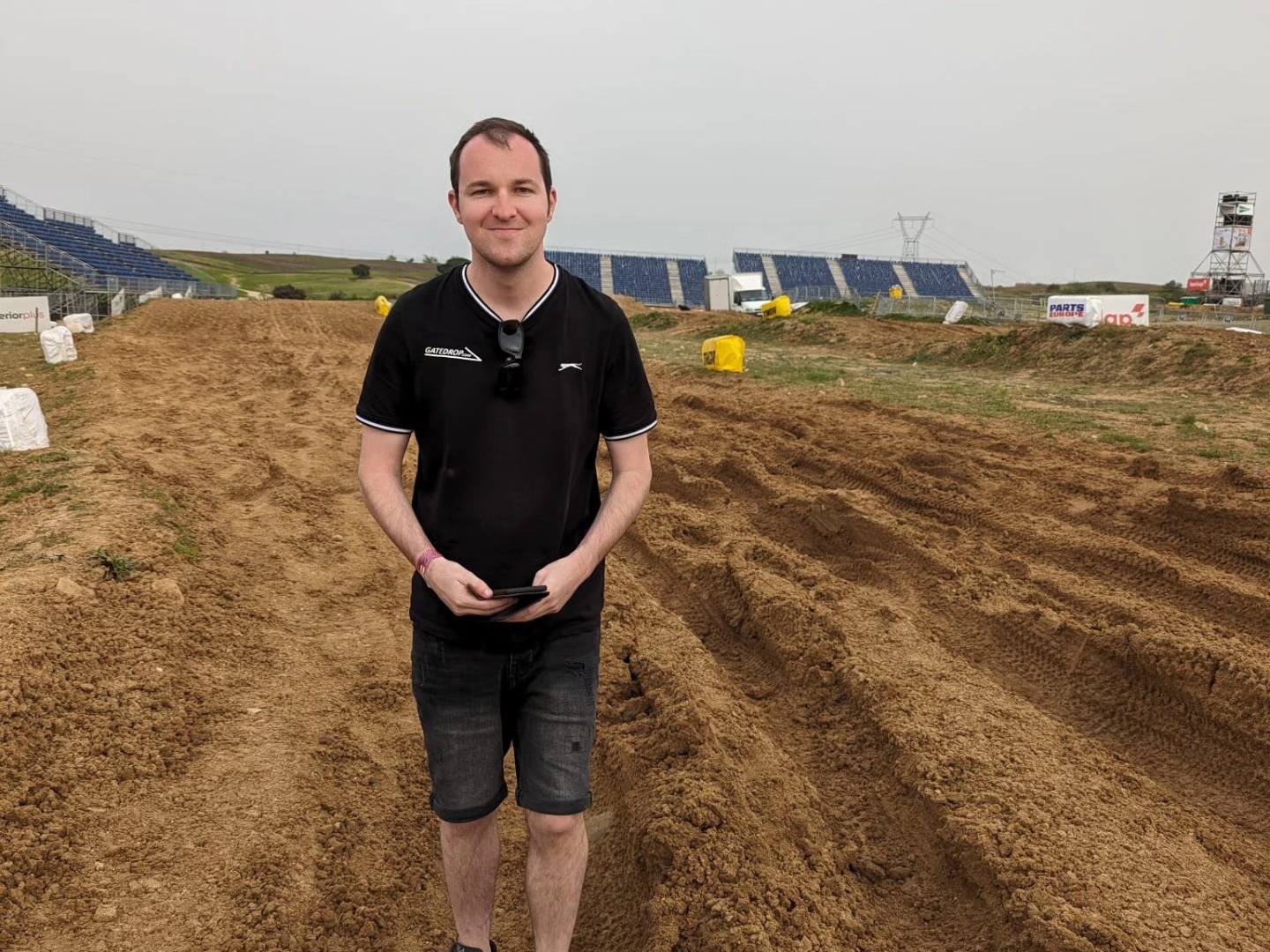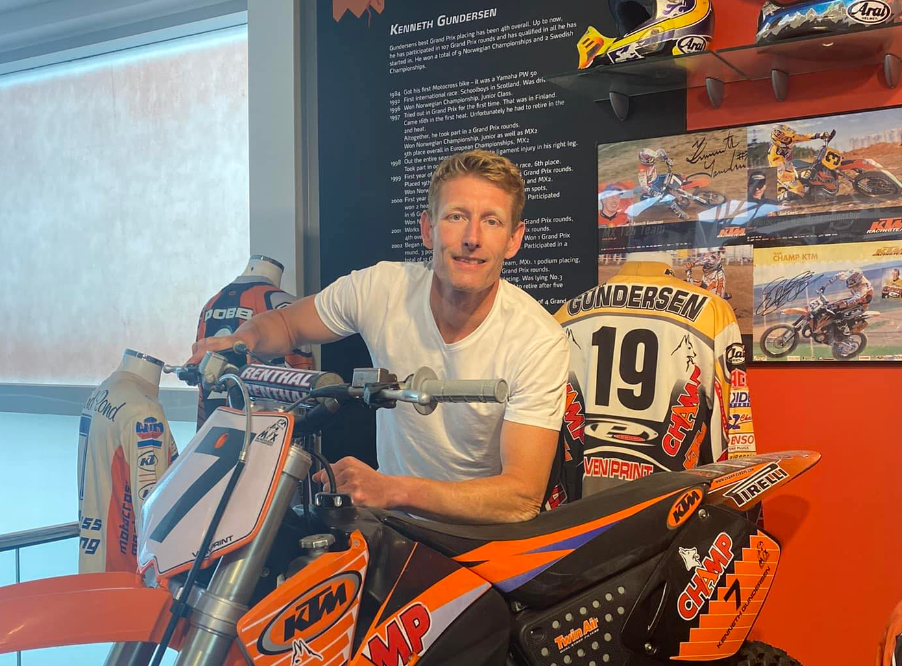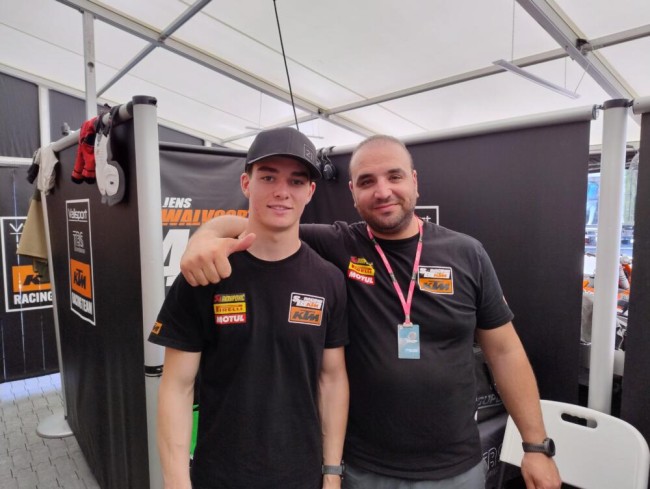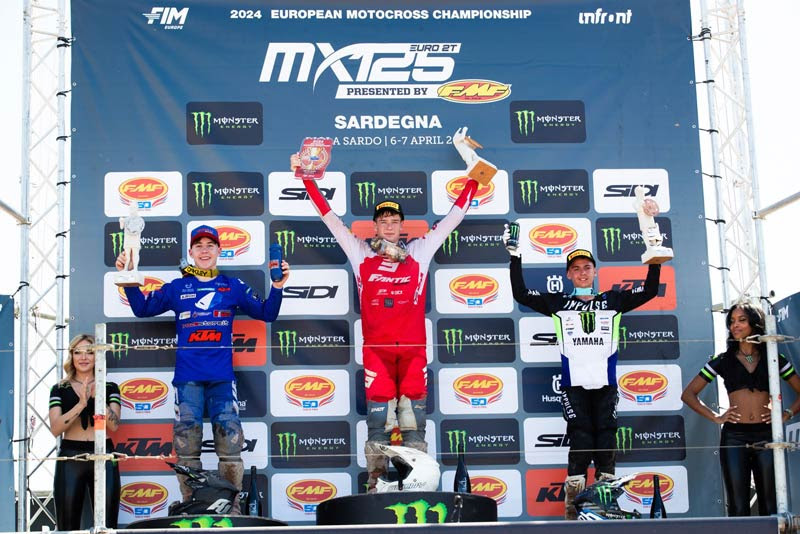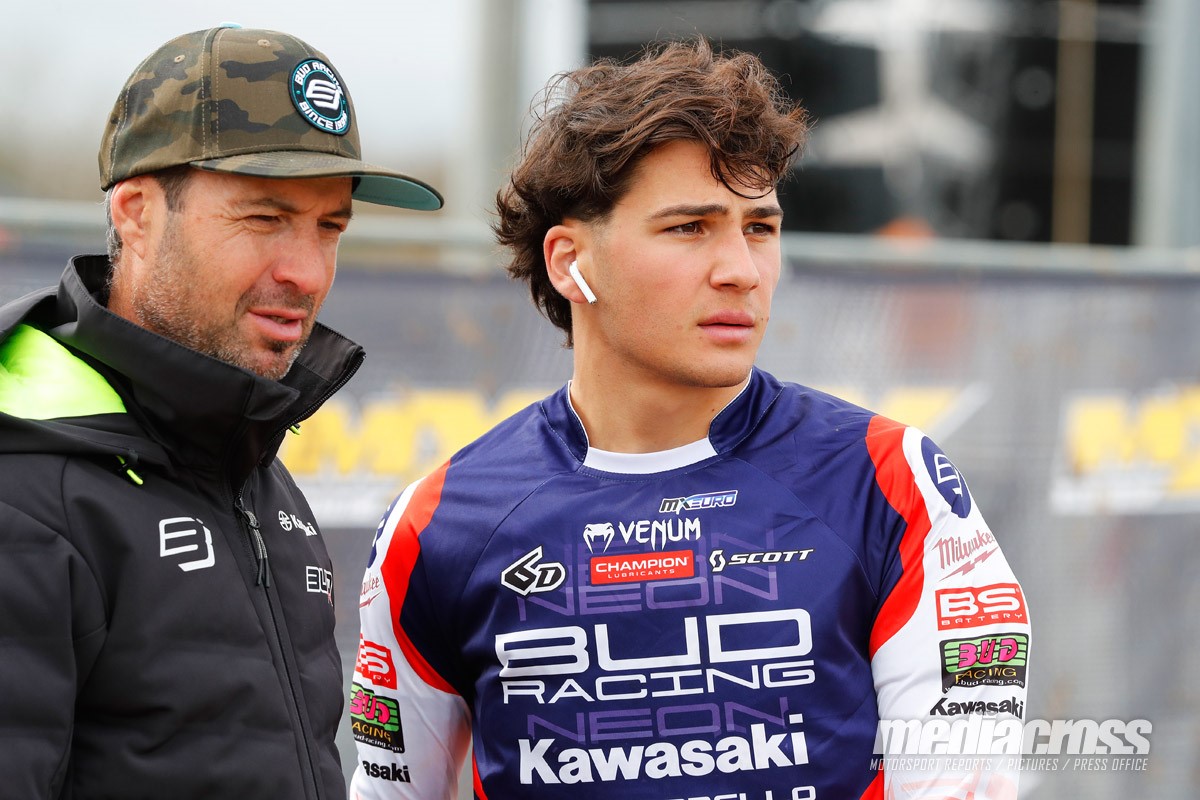A hush falls across the audience. It is a TEDx crowd, and they have come to be informed, to be entertained, to be inspired. A young man sits on stage in a wheelchair. It is a handsome young man, strong facial features hanging portrait-like under a luxuriant mop of coiffed hair.
He settles into his routine. His voice is strong, and displays no waver or hesitation as he goes across the route that brought him here, a series of events that started with an audible crack in his spine after a motocross crash, a single, horrible, unforgettable moment which left his life he irrevocably changed. In sober tones he relays the fact that he immediately realized that he had been paralyzed. His story pulls the crowd in, and you can hear the proverbial pin drop as he shifts through the gears of his narrative.
It is a tale of a young man whose motocross career was summarily cut short, ironically and cruelly when he was holding steady in his best position ever in a GP race, and at a stage when there was every indication that he was ready to break into the elusive top ten of the world’s best. He recounts how he lay there, mercifully still conscious, bikes snarling all around. He bids the medical personnel to take care, for indeed the situation is grave. His parents, who rushed to his side, receive his first-person analysis with grave countenances, and indeed, the talk swivels almost immediately to what the future holds.
The audience sits spellbound, and so do you, the YouTube viewer, for this is a tale that reaches through the screen and grips the very heart of you. He speaks in measured, unemotional tones, yet it is no less a potent performance than the most emotive Hollywood movie scene, replete with dramatic music underscoring it. The drama increases as he relates how he decided to focus on mini contractions he still felt in his legs immediately after his accident, and which resurfaced again after his second operation. He made a firm resolution to work on this several hours per day, to give the hope that he still had every opportunity of transforming itself into reality.
And there is the sea of emotions. Hope, despair, acceptance, anguish, washing over him in endless cycles. The rehabilitation phase commences, and subconsciously, his mind comes to his aid, by bringing visualizations of him walking again. He rejects his supervising surgeon’s exhortations to accept his fate and focus his rehabilitation efforts on optimal utilization of his wheelchair. No, there must be more, and where there is the merest scintilla of hope, he will pursue it. He must rise again.
As the talk progresses, one can sense that it is heading towards an climax. At one stage the young man pulls himself onto a table. There is not a dull moment as he talks about his continuing quest, the always energy-sapping and oftentimes mentally-draining recovery sessions. He reaches behind him, takes his crutches in hand, and to a chorus of audible gasps, starts to walk across the stage. Applause erupts, and the emotion lies shallow in our eyes as we share in the triumph of this young man who quite simply would not give up.
That young man goes by the rather poetic name of Axel Alletru, and if we allow the mind to spool back in time, I can think of many pleasurable moments in discussion with him at motocross tracks all across Europe. The Frenchman is of friendly disposition, always has been. The attraction of his easy-going demeanour was boosted no end by the ubiquitous presence of a stunning specimen of a Rhodesian Ridgeback always by his side. This is not a dog that you stumble across in Europe every day of the week, much less so at a motocross track. Anyway, Rouyette was a motocross dog pur sang, and a great conversation starter wherever Axel Alletru went.
Axel’s story has captivated hundreds of thousands across the world. A talented rider, he raked in eighth place in the final 2009 European Championship standings, which earned him a call-up to the GP ranks for 2010 as part of Jacky Martens’ team. He settled into the higher calling with more and more authority, settling in on the points ladder. It seemed that his star was on the rise and rise. Fate would decree otherwise.

In 2017, Polaris appointed him as brand ambassador, and he participated in several racing events in Polaris machines. His ambitions became ever loftier, and in 2019 he put the gruelling 3 000km Morocco Desert Challenge behind him. “Nothing is impossible,” became his rallying (in all the double meaning of the word) cry, and he announced his intention to participate in the 2020 Dakar Rally.


Now, let’s pause just a moment to let the significance of this sink in. The Dakar is massive. It is the big momma (or mummy, to rope in a desert-related phrase) of all endurance races. It is like the Iditarod, the Comrades Marathon, and the America’s Cup rolled into one. The 2020 edition will take competitors across 7 500km of the most inhospitable desert terrain imaginable, and those who complete the gruelling course will truly be able to claim that they had done a lap of Saudi Arabia. Daily stages range from just over 400km to just shy of 900km each.
To put that in perspective. For most of us, a 600 km road trip is a fair bit of a challenge. And that’s on tip-top roads, in the comfortable confines of an air-conditioned vehicle, with agreeable music (or somewhat less agreeable fighting children) as accompaniment. Dakar competitors will unspool this distance on average every day for 12 days, in bucking, temperamental, snarling vehicles, traversing unpredictable, power-sapping sands and rough terrain that resembles nothing so much as the surface of the moon. And there’s no let off when you arrive at the daily check point, either. Running repairs have to be effected within a limited time-frame, the vehicle has to be checked for (un)roadworthiness, for indeed we speak here of non roads, and then you need to seek out what few hours of precious rest you can manage. Not in a plush hotel room, mind, but out there in the desert, roughing it in a manner that would make a hardened nomad wince. In short, it is a tough event.
In lilting tones, a joy to listen to, we are treated to Axel unveiled. His tone is, again, measured, but his excitement with this huge new step in his career is palpable as he takes us on a journey that picks up in the past, drags us beyond the present and bid us look into the future.
Axel picks up the history when the world still seemed promising and uncomplicated. “If you see right now, that riders like (Glenn ) Coldenhoff and others that I was competing against are front-runners in the GP series, I feel that my level was competitive and I was just at the beginning of my potential. So of course it was massively frustrating not being able to pursue my world championship dreams.”
He recalls the dark days immediately following his crash. There was the devastation, the crushing realization that he may be wheelchair-bound for the rest of his life. He was determined to make the most of it, though, striving for the best possible outcome. “I was really focused on rehabilitation, and mentally gave myself two years to work towards my goal of walking again, and then to re-evaluate my position at the end of that period. I focused like a laser, and for two years I worked harder than I ever had worked in preparation for a motocross season. The whole time, it was like a refrain in my head, ‘left leg, right leg, left leg, right leg’.”
Axel has high praise for the therapists that worked with him. The chief surgeon left less fond memories, though. Maybe out of an abundance of caution, the head of department criticized Axel’s strenuous efforts to try and get up, opining that he ran the risk of aggravating the injury. Axel’s disquiet arises from the fact that the doctor did not witness his countless hours of toil and unceasing training that underpinned these efforts to join the ranks of the bipeds again.
Axel maintains that if he had accepted the doctor’s cautionary instructions and had adapted his program accordingly, he would in all probability not have self-driven himself to the level of recovery that he has now achieved. Again his praise goes out to his therapist, who went above and beyond the call of duty. She made special braces for him to assist in his efforts, and supported him unfailingly throughout this grinding journey. Only now does a hint of emotion creep into his voice. Against medical advice, as it were, they plotted the way forward and conquered the physical – and mental mountain.

The paralympic swimming career came as almost a natural outlet for his physical – and competitive ambitions once the rehabilitation process had taken its course. “I had to have some goals for each day, and I decided that I again wanted to participate in competitive sport. I actually had to relearn swimming, because it is quite different to swim without the aid of your legs.” Axel assembled a team around him, including a trainer and a physical therapist. Hard work and dedication will out, and the results are there for everyone to see. A full dozen French titles, plus a European gold to top it all, are not to be sneezed at in anyone’s language.
Axel was devastated by his late-stage reclassification into a higher category that denied him participation in the 2016 Paralympics in Tokyo, when he had already qualified in his then current category. Despite legal action, the governing body held firm, and one gets the impression that Axel thought that he would forever be chasing shifting goalposts, a train of thought that eventually signalled the end of his competitive swimming career.
The sheer drama of Axel’s story had by now generated interest across the country, and the motivational speaking circuit beckoned. His undeniable good looks, easy delivery and riveting tale made him a natural for this, and culminated in a highly-praised appearance at a TedX Talks event. He continues to inspire to this day, with regular appearances at schools, sporting – and corporate events and further afield.
Ironically, the swimming federation’s actions prompted a quantum shift in Axel’s thinking, and for the better. He now no longer thought in terms of competing a mere one category higher, his mind now catapulted to finding a way of competing against able-bodied people. One can fair envisage how his face set in square-jawed determination as this realization dawned. “I said to myself, “I’m done with swimming now, I want to return to mechanical sports’”, he muses.
After some initial success on four wheels, Axel won a big race in France, and in 2018 the Dakar dream took shape. “I usually participate in shorter sprint races, but earlier this year I participated in the Moroccan Rally, which familiarized me with the much tougher demands of having to race 500km or more per day over several days. We’ve been working on constructing and adapting the car since May.”
Axel will participate in the SSV class with a car that is specially adapted with a special throttle – and brake assembly to compensate for his handicapped state. He will be fortunate enough to be able to rely on heaps of experience in the co-driver’s seat, in the form of Belgian Francois Beguin, who has no less than 17 Dakar races under his well-worn belt. “For him it will be a challenge as well,” Axel says considerately. “I will be in the car, but I cannot change a wheel, for instance, or do all the repairs that may be needed. The co-driver is an indispensable part of the program, and we are very excited about it.”
We ask Axel how will he manage to modulate the brake feel, seeing as he has no sensation in his leg. “We have fitted an oversize brake pedal,” he says. “Of course I have no sensation in my leg, but we have worked hard at it, am I have managed to develop the ability to judge how much braking force I am applying.”
A project like this presents many, many challenges, not least of which revolves around the finances required to make it all fly. There is a sizeable staff to think of, support vehicles, spares, the race car itself, travel expenses, and, as everyone that’s every raced a metre knows, the countless little financial foxes that pop up to bedevil things. Axel puts the budget at round €300 000, the greater part of which they have managed to scrounge together.
Axel is realistic about his objectives for this event. “This is my first time in this event, which is for sure the toughest out there. Our objective would be to get to the finish, not take risks, and learn as much as possible. If I see opportunities to go for a stage win or – podium , of course I will go for it, but we are not going there with any pre-set ideas of where we would like to finish. If it turns out well, maybe I can get a future opportunity to race with a professional team, but, like any racing program, it’s a step by step thing.”
The Dakar is more than double the distance of the longest race that Axel has ever participated in. “For me it is a new challenge, and you have to concentrate on saving the car, saving the wheels, and pacing yourself. It is not like a short course race which is basically full gas all the time, but I believe that we are physically and mechanically well prepared for the event.”


Words: Tinus Nel


